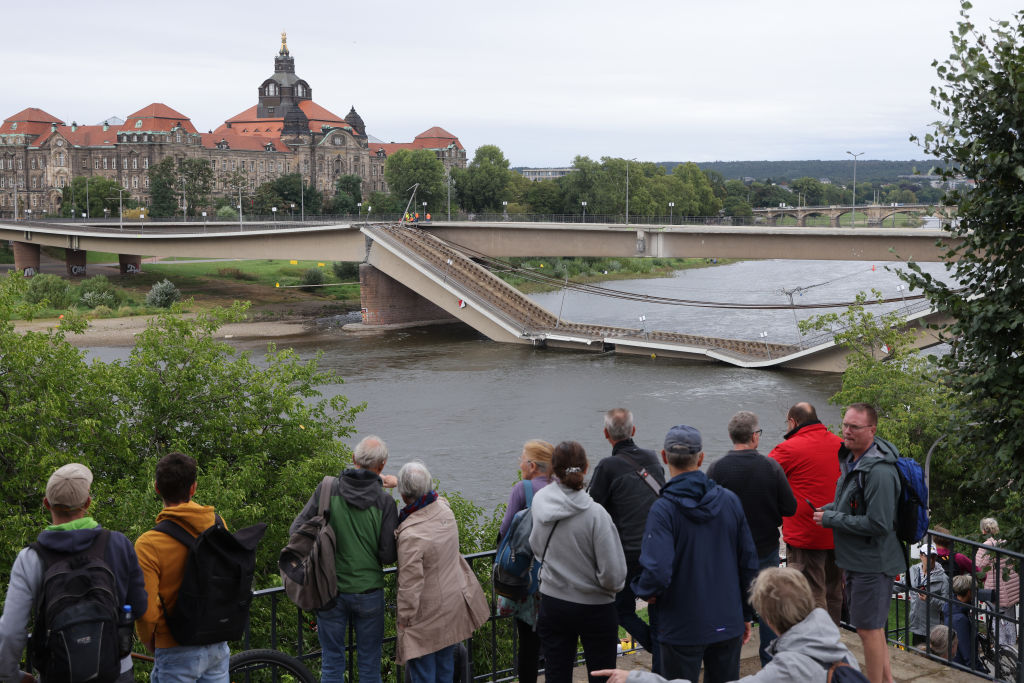Free-market economies experience boom and bust cycles. The hope is that after every recession there will always be a period of renewed economic growth. Some economists think this business cycle has the regularity of a physical law. But it cannot be taken for granted — certain conditions are required.
In Germany, those conditions are rapidly disintegrating. The country may be witnessing not just a regular economic downturn, but the degrading of the very structures needed for any future recovery. To symbolise this point, this week a bridge in the city of Dresden collapsed just minutes after a tram crossed it, thereby narrowly avoiding a fatal disaster.
Although no one was hurt, this is yet another example of Germany no longer living up to its reputation of being a well-run and efficient country. During this summer’s Euro 2024 football tournament, there were endless examples of Germany’s public transport buckling under the pressure. This is something we may have expected during the 2010 or 2014 World Cups in South Africa and Brazil respectively, but not in Germany in 2024.
Yet the country has been steadily falling behind in rankings measuring international competitiveness, especially due to a deterioration of its infrastructure. A decade ago it was ranked sixth; now it is 24th. According to a study, 20% of value-added activity is in danger of being lost.
KPMG has reported that digital infrastructure is worse than in surrounding countries as streets and bridges need renovations and bureaucracy is overwhelming. Only 58% of surveyed CFOs of foreign corporations in Germany consider Europe’s largest economy to be among the five most stable EU countries. Two years ago, the figure was 80%.
Looming above it all are high energy costs, making life especially hard for energy-intensive industries. A lot has been written about Germany’s suicidal energy policy, but nothing has been as devastating as a recent study showing that Berlin spent €500 billion on the “energy transition” towards renewables and barely has anything to show for it. If the funds had been spent on nuclear energy instead, Germany would have saved money, produced more energy, and decarbonised its electricity grid. Instead, the country wasted billions and — for the first time in 22 years — became a net importer of electricity.
Unsurprisingly, and not without justification, German voters are becoming increasingly disgruntled with the status quo. This was shown in the recent elections in Saxony and Thuringia where the Right-wing Alternative for Germany (AfD) won huge gains. Part of the AfD’s success can be attributed to its economic policy. It calls for an end to government subsidies that distort the market, an end to the country’s expensive green energy transition and, crucially, a reversal of the current deindustrialisation. If such moderate economic policy is abandoned by the centrists in power, then voters will look elsewhere. And Olaf Scholz’s ruling coalition will be partly to blame for the resulting cultural and social division.
Germany’s manufacturing and industrial success must be the bridge that links its past success and future prosperity. It cannot suffer the fate of the bridge in Dresden.











Join the discussion
Join like minded readers that support our journalism by becoming a paid subscriber
To join the discussion in the comments, become a paid subscriber.
Join like minded readers that support our journalism, read unlimited articles and enjoy other subscriber-only benefits.
Subscribe